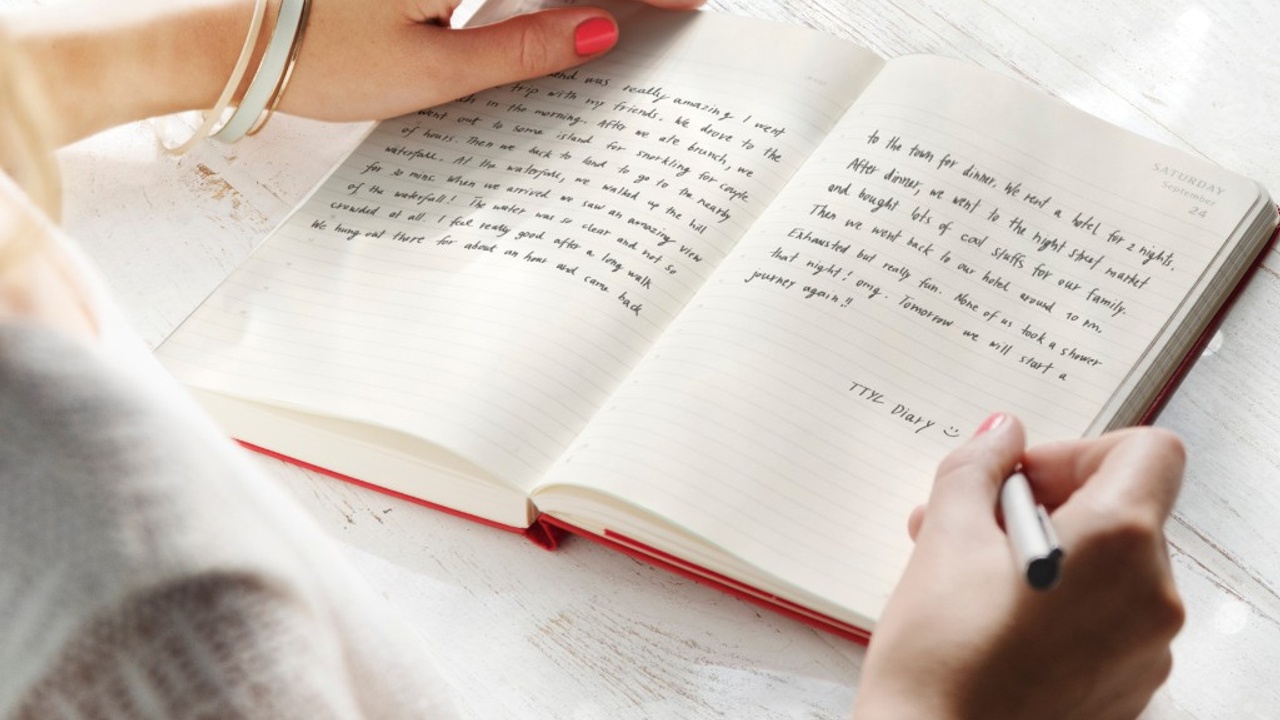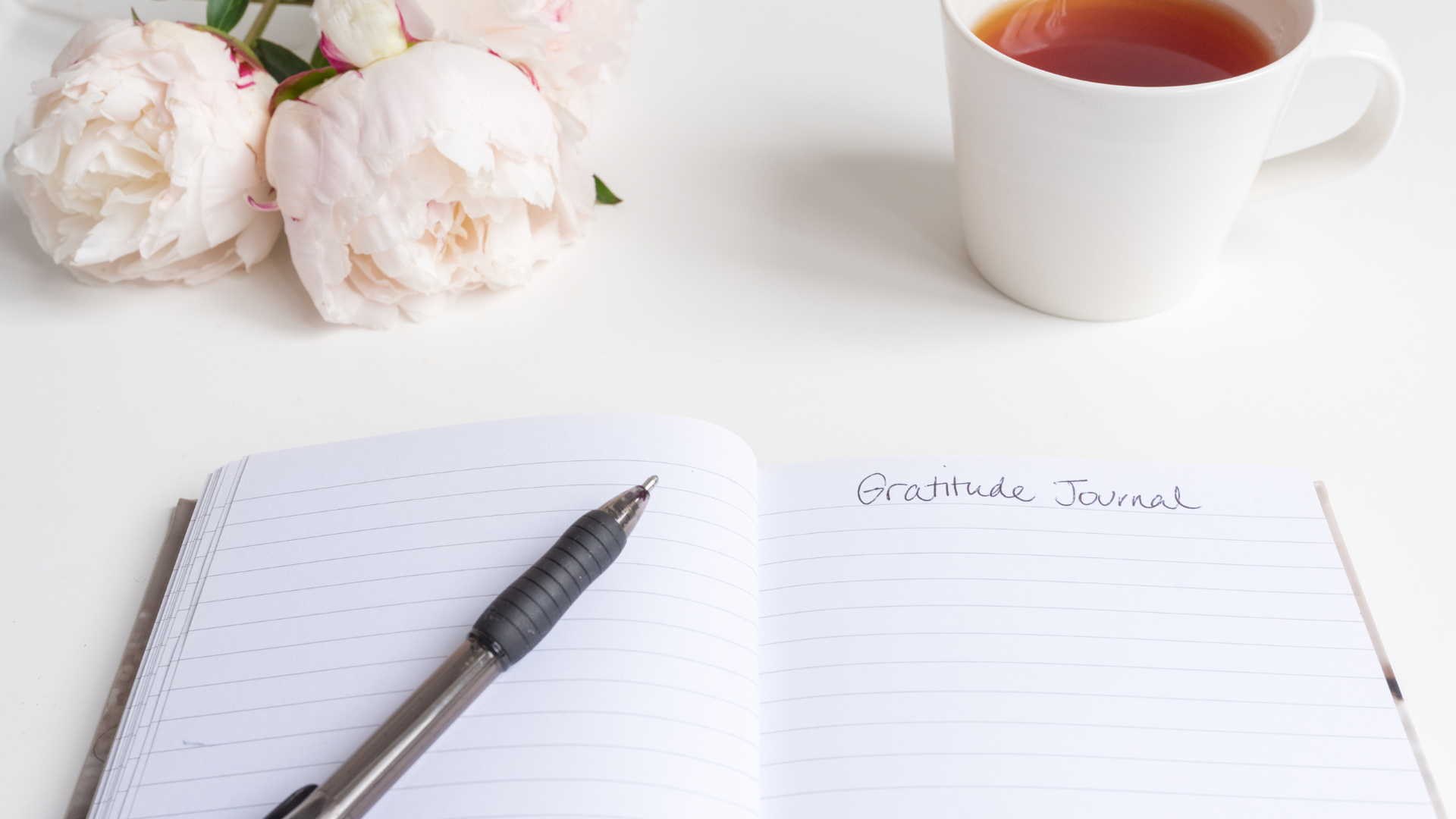Benefits of Journaling & 7 Tips to Start Journaling in 2023
Oct 13, 2022
Journaling is a powerful personal growth and wellness tool that offers a wide range of benefits (backed up by various research) to improve your well-being, which includes:
- Reducing depression and anxiety.
- Boosting immune function.
- Cultivating gratitude.
- Helping with recovery from trauma.
- Improving memory function.
In a controlled clinical research conducted by James W. Pennebaker, a social psychologist at the University of Texas at Austin (considered the pioneer of writing therapy), he presents evidence that personal self-disclosure is good for our emotional and physical health.
According to Dr Pennebaker's research, even a one-time 15-to-30-minute session of focused journal writing can be beneficial and need not be every day.
The key to effective journaling is to gather insights, find resolutions, or come to a solution. In Dr Pennebaker's book, "Opening Up: The Healing Power of Expressing Emotions", he advised against writing too much, especially if you're going through a difficult time. Simply because you want to prevent writing from becoming ruminating, and that's the last thing in the world you need. Rumination prolongs and intensifies negativity and impairs your ability to think and process emotions.
I will be sharing some tips about effective journaling and expressive writing so you can enjoy its benefits.

Benefits of keeping a journal and expressive writing
Journaling can help declutter your thoughts and express yourself freely. It's an outlet to release heavy emotions, such as frustrations, anger, pain, and disappointments, along with other negative emotions. It also works as a tool for goal-setting and plans for action steps. Journaling can offer you:
Self-discovery
Deepen your knowledge of yourself through journaling, which helps you take a break from it all and reconnect with your inner self. As you write your thoughts, you learn more about yourself – including your goals, preferences, dreams, and pains. Practising this habit daily, you'll develop a deeper connection with yourself.
Decision-making
Figure out the next step by pausing and journaling to help you understand how best you can proceed with what to do next. As you calm down and pen your thoughts, it also allows you to process your emotions and decide better than acting based on intense emotions like anger.
As journaling allows you to see concerns, emotions, insecurities and limiting beliefs (if you allow them to surface), you'll get a clearer picture of the situation rather than acting on impulse.

Stress reduction
Journaling is a fantastic outlet to release stress when there is a lot going on internally. So when you're feeling subjugated by life in general, journaling can be a great destressing tool as you identify the triggers and develop strategies to manage and reduce stress.
Wellness boost
Writing about your deepest thoughts and intense feelings can uplift your mood and lower blood pressure. It may also help improve overall well-being and health.
Anxiety reduction
Constant worries and negative thoughts may arise day to day, and sometimes you might be feeling overwhelmed with the anticipated negative events that accompany these worries.
When you start journaling and making it a habit, you'll create space that could offer an objective perspective to see the negativity. Also called cognitive defusion, you'll be able to get the idea that you're not your physical symptoms, thoughts, or emotions. Rather you're the context in which any of these exist.
Thus, you don't have to believe any of those thoughts if they're not serving you. Journaling will help you see your thoughts as NOT YOU. You're separate from those, and they're only your thoughts again.
Not sure how you can kickstart the journaling journey? Fret not. I've got you covered. Check out my beautiful Living Your Best Life 2023 Planners that provide you with the personal space for exploration, reflection and self-inquiry.
In this blog, I'll discuss how you can start journaling and ways it can give you a life with reduced worries and more happiness.
How to Start Journaling
Initially, it might be intimidating to start a journal if you haven't tried it before. And just like your first attempt at anything new, you'll take some time to find your momentum and find what works for you before you get used to it.
In no time, you'll be enjoying the journaling journey and reaping its benefits when you follow my journaling tips. Let's get started...
1. Determine the journaling method that works for you
Some people are comfortable writing with pen and paper, and others on their phone's notes app, or voice recording their thoughts. Meanwhile, there are also those that love to put their thoughts on a Word document.
Do you find inspiration when riding a train and feel comfortable writing notes in your small notebook before you forget them? Do what works for you and make the process enjoyable and fun.
So before you start journaling, determine your style by understanding the method that may work best for you and caters to your lifestyle.
2. Write freely
Journaling is no place to be a critique of your work. Just write your thoughts down without any judgement of grammar and punctuation. Your journal is a free zone where you express yourself and speak your mind.
Don't let your inner critic get into you, but practice compassion.
Make it your me-time and personalise it. After all, your journal is also for you and developing your personal growth through a deeper understanding of your thoughts. Don't worry about what other people say or think about your writing.
3. Don't expect too much from yourself and take it too seriously
Unlike many things, there is no need for a journaling KPI. When you start writing, don't put pressure on yourself, thinking that you need to achieve a set of outcomes, or come up with pages and pages of your thoughts. Whether you're writing one or two paragraphs, it's fine.
Don't set unrealistic expectations which may make you feel discouraged and forgo journaling altogether. Give yourself some time to practice and get used to the new activity. Again, there is no room for judgement in your journal.

4. Create a journaling schedule
One of the best ways to get used to the habit of journaling is by setting a schedule to do it. Have some block-off time in your schedule and mark it as 'me-time'. In this way, you'll stay on track even during times when you don't feel inspired at all.
You can write first thing in the morning or before bedtime and do it for about five minutes or more. Or consider journaling during the weekends if your schedule is packed during the weekdays. Use this time-blocking method to help you make journaling a part of your daily routine.
5. Take note of anything that comes to your mind
Write about your thoughts, day, emotions, or even anything you feel inspired to write about. Journaling is a great channel to release your emotions, including your frustration or loneliness. It's a venue where you can write about anything you're thinking about, which is why it's a useful tool to destress and lighten up one's mood. It's like having someone who can listen intently without any judgement – it's your journal.
6. Be creative
Express yourself freely! Did you know that journaling isn't just in the form of text but also art, sketching, lyrics, or poetry? Whatever creative activity you feel like doing today, do it!
7. Sticking with the habit of journaling
No habit is built overnight, but it's a result of constant practice, which requires commitment and discipline. Initially, it can be challenging to set a time for it or even keep up with it daily, but with commitment, you sure can allot even five minutes of your time to perform this wellness activity.
Journaling clears your mind and allows you to see the bigger picture. Whenever you're feeling overwhelmed, you can use it as an outlet to release your worries, anxieties and intense emotions. While it takes some time before getting used to the habit of writing in a journal, it will definitely be worth your while for its plentiful benefits, such as improved mood, health, and wellness. Start little by little and use the right journaling method that works for you.
Ready to kickstart your journaling journey? Check out my Living Your Best Life Planner 2023 collection here.
With gratitude,

The content of this website is not meant to substitute any advice provided by medical professionals. If you suspect that you're facing mental-health-related problems, you're strongly encouraged to seek professional help.
References
Pennebaker, J. W. (1997). Opening Up, Second Edition: The Healing Power of Expressing Emotions. (Rev. ed.). Guilford Press.
Smyth, J. M., Johnson, J. A., Auer, B. J., Lehman, E., Talamo, G., & Sciamanna, C. N. (2018). Online Positive Affect Journaling in the Improvement of Mental Distress and Well-Being in General Medical Patients With Elevated Anxiety Symptoms: A Preliminary Randomized Controlled Trial. JMIR mental health, 5(4), e11290. https://doi.org/10.2196/11290





